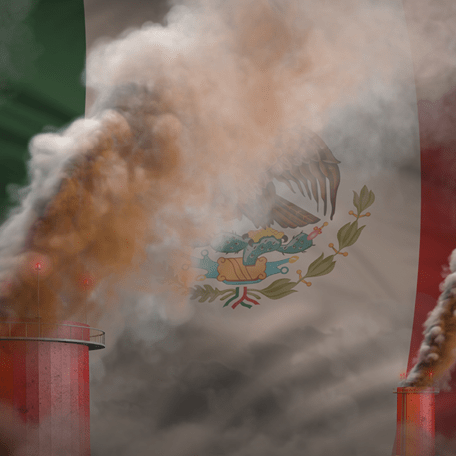Lula has been elected president in Brazil for a third term having previously been president from 2003-2010. In the tightest election in recent history, Lula had just under 51% of valid votes to Bolsonaro’s 49%, with the six million votes that separated them in the first-round closing to just two million. Lula will take office in January.
While clear policy details have been scarce, early in his campaign Lula distanced himself from the far left of his Workers’ Party making it clear he will adopt pragmatic, centrist policies, and moved further to the centre in the latter stages. An early signal of this shift was his decision to choose former Sao Paulo Governor Geraldo Alckmin as his running partner, who will now become his Vice President. Alckmin, and the centre-right PSDB party that he founded in the 80s, have been in opposition to Lula’s Workers’ Party for decades, but this reflects Lula’s understanding that to get elected and be able to govern the country effectively he needs to look beyond his leftist base. This increases the likelihood of at least a modest reform agenda which Brazil is still in need of to shore up government finances and raise economic growth potential.
Despite hailing from different ends of the political spectrum, the outlook for fiscal policy under both candidates was surprisingly similar. The spending cap will be amended next year and a new credible fiscal framework needs to be put in place. Debt to GDP, which had stabilised prior to the pandemic under President Temer before spiking in 2020, has fallen from 90% to 77% as both GDP and government revenues surpassed expectations, and has now returned to 2019 levels.
However, a new fiscal framework is essential to cement these improvements and ensure debt remains at sustainable levels. This is where concerns of a sharp move to the left under Lula will likely prove unfounded. Lula, above all, is a pragmatist. On the one hand, he won’t have the money to spend as generously as he did during his previous terms as president, and on the other, the majority of Congress being from centre and centre right parties will mean he doesn’t have the freedom or support to pursue radical or destabilising economic policies. Confirmation of this should come through the appointment of his cabinet, and in particular his finance minister, in the weeks ahead.
One area where the election of Lula is undoubtedly positive is his environmental policies. During his time as president deforestation fell by two thirds but more recently it has risen sharply and is on track to reach a fifteen year high this year. Lula’s campaign directives promise to eliminate deforestation and promote a sustainable growth agenda. There are clear economic benefits from reduced deforestation and better environmental policies. Some of Brazil’s agribusiness exports to the EU could be at risk due to the increase in deforestation, as well as their OECD candidacy and the EU-Mercosur trade deal. Brazil also has significant potential to benefit from the sale of carbon credits. An initial step to develop a local carbon market has been taken but further legislation is required, and this is likely to be accelerated under Lula.
With the sharp derating that has occurred over the past two years, despite the strong earnings recovery, Brazilian equities are now trading at less than seven times earnings, a more than 50% discount to five- and ten-year averages and 35% discount to the broader emerging markets, having historically traded at similar valuations. This is also at a time when inflation is falling, interest rates have peaked and look set to fall in the first half of next year, a situation very different to many other emerging and developed economies.
The central bank was very proactive in addressing inflationary pressures and began hiking interest rates in March last year. This early and decisive action helps to explain the Brazilian real’s strong performance this year being one of the few currencies globally to have appreciated against the dollar. This is a far cry from the 2013 taper tantrum when Brazil was labelled one of the ‘fragile five’ economies under pressure as the Fed began talking about tapering QE and raising interest rates.
Recession fears could continue to weigh on regional and global equities through the months ahead but relative and absolute valuations are already at extreme levels, suggesting significant risks are already priced in.
KEY RISKS
Past performance is not a guide to future performance. The value of an investment and the income generated from it can fall as well as rise and is not guaranteed. You may get back less than you originally invested.
The issue of units/shares in Liontrust Funds may be subject to an initial charge, which will have an impact on the realisable value of the investment, particularly in the short term. Investments should always be considered as long term.
Investment in the Fund involves foreign currencies and may be subject to fluctuations in value due to movements in exchange rates. The Fund may invest in emerging markets/soft currencies or in financial derivative instruments, both of which may have the effect of increasing volatility. The Fund holds a concentrated portfolio of stocks, if the price of one of these stocks should move significantly, this may have a notable effect on the value of the portfolio.
DISCLAIMER
This is a marketing communication. Before making an investment, you should read the relevant Prospectus and the Key Investor Information Document (KIID), which provide full product details including investment charges and risks. These documents can be obtained, free of charge, from www.liontrust.co.uk or direct from Liontrust. Always research your own investments. If you are not a professional investor please consult a regulated financial adviser regarding the suitability of such an investment for you and your personal circumstances.
This should not be construed as advice for investment in any product or security mentioned, an offer to buy or sell units/shares of Funds mentioned, or a solicitation to purchase securities in any company or investment product. Examples of stocks are provided for general information only to demonstrate our investment philosophy. The investment being promoted is for units in a fund, not directly in the underlying assets. It contains information and analysis that is believed to be accurate at the time of publication, but is subject to change without notice. Whilst care has been taken in compiling the content of this document, no representation or warranty, express or implied, is made by Liontrust as to its accuracy or completeness, including for external sources (which may have been used) which have not been verified. It should not be copied, forwarded, reproduced, divulged or otherwise distributed in any form whether by way of fax, email, oral or otherwise, in whole or in part without the express and prior written consent of Liontrust.













